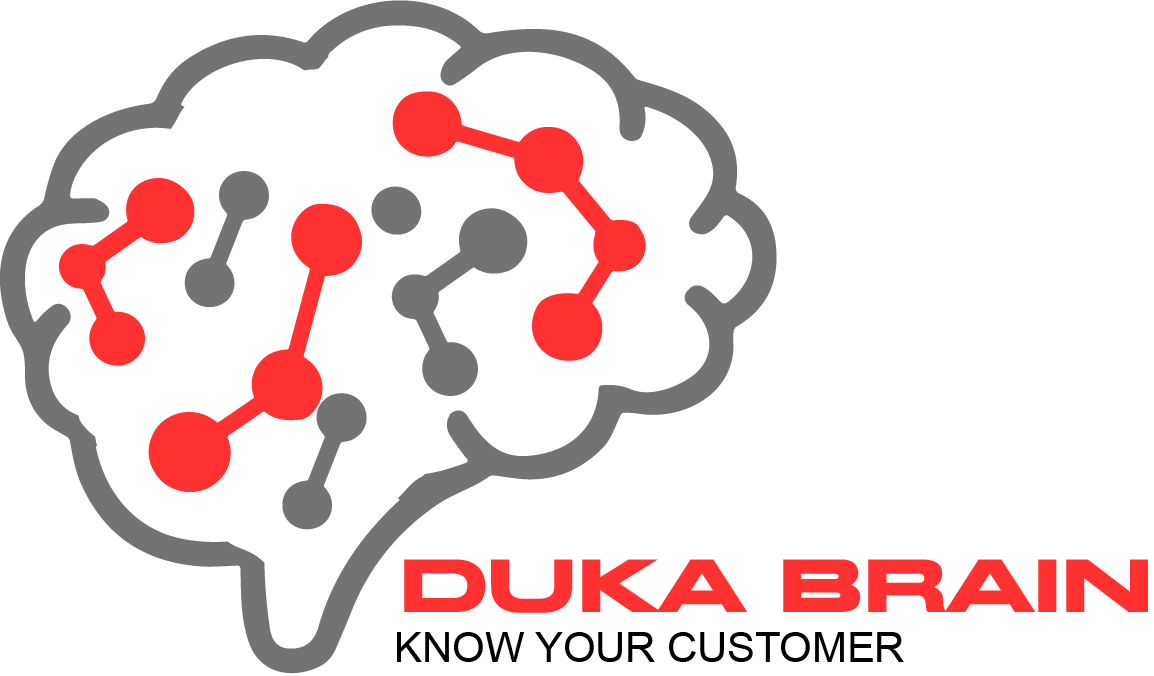Introduction: Google AI’s Arrival – A Tsunami for Search
Last week, Google's cutting-edge AI search features finally launched in the UK—an event making shockwaves across the marketing, tech, and business world. As the BBC reports, Google AI’s introduction marks the biggest shakeup in how people search and find information since the early days of the internet itself.
But there’s more. Leaked internal Google documents, first detailed at Search Engine Land, reveal that Google’s “AI Mode” isn’t just changing what users see on the search results page—it’s also revolutionizing advertising targeting, spend, and revenue models behind the scenes.
For modern marketers and brands, this means two things:
- The old rules of SEO and search marketing are being rewritten at breakneck speed.
- If you don’t move now, you’ll lose search visibility, traffic, and revenue to faster-moving competitors.
So, is this the death knell for SEO? Or just the next evolution? And what should brands actually do today to stay ahead?
Let’s break down the impact, the myths, and—most importantly—the 10 essential strategies brands can implement now to win in this new AI-first world.
Why This Matters Now: The Immediate Impact on Search & Marketing
The launch of Google AI in the UK isn’t just another software update. It’s a paradigm shift.
Here’s what’s changing right now:
-
From Keywords to AI-Generated Results:
The classic SEO playbook—stuffing pages with keywords and obsessing over blue links—is being sidelined. Google AI now synthesizes a question, scans the web, and returns an instant answer at the top of the page. For many, this answer will replace the need to click any further. -
Ad Targeting Is Being Supercharged:
As Search Engine Land uncovers, Google’s internal testing shows its AI can pinpoint commercial intent and buying signals with new precision. This means more competitive ad auctions and nuanced ad placements—sometimes even embedded within the AI answers themselves. -
Marketing Strategies Must Pivot In Real-Time:
Marketing Week reports that marketing teams are scrambling to test, adapt, and redeploy content and campaigns to fit this constantly evolving AI search ecosystem. Strategies are being reconsidered, budgets reallocated, and skillsets upgraded—at pace. -
Organic Traffic Patterns Are Shifting:
As users get the “best” answer right from AI at the top of their screen, fewer will scroll to links or click through to websites. Brands that once dominated organic traffic could see drops unless they adapt their approach.
The core tension: If Google answers everything upfront, does that kill SEO? Not quite.
The SEO Myth Debunked: Why SEO Isn’t Dead—It’s Evolving
First: The rumors of SEO’s death are (again) greatly exaggerated.
Here’s why:
-
AI Isn’t Replacing SEO, It’s Raising the Bar.
Google's AI still needs relevant, well-structured, accurate content to feed its answers. If your brand produces stronger source material, you still shape the conversation. -
Content Relevance Is More Important Than Ever.
Content that directly and precisely matches what users want—demonstrating firsthand expertise—will fuel AI results. Generic, surface-level material? Ignored. -
SEO Now Includes ‘AI Readability’.
Optimizing for keywords alone is obsolete. Formatting, clarity, data structure, and context—all things that make content easy for AI to parse and use—are crucial. -
Brands Already Winning:
Early adopters are using AI-informed research to identify what types of content Google’s models highlight and structuring long, in-depth, and well-supported articles accordingly. These brands enjoy both traditional rankings and increased AI answer visibility.
In short: SEO is still core to your digital strategy—but now it must evolve to sync with Google AI’s preferences. So, those focused, strategic, and agile in their SEO efforts will win.
10 Actionable Strategies Brands Can Implement Today
It’s time to adapt, not panic. Here’s your new playbook for the AI-powered search era:
1. Optimize for Natural Language Queries
- Google AI prefers conversational, context-rich questions (“How do I improve my credit score?” vs. “credit score tips”).
- Rewrite content to echo how real people ask questions.
- Use FAQs, step-by-step explanations, and Q&A formats.
2. Focus on Content Depth & Expertise
- Prioritize long-form guides, industry deep-dives, and subject-matter expert commentary.
- Google AI rewards sites offering clear, accurate, thorough answers.
- Regularly update content to maintain relevance.
3. Enhance E-A-T Metrics (Expertise, Authoritativeness, Trustworthiness)
- Cite reputable sources and link to expert profiles.
- Use author bios, credentials, and transparent sourcing.
- Support opinions with data and trusted third-party research.
4. Use Structured Data Markup Extensively
- Apply rich schema tags for articles, products, reviews, events, and more.
- Enables Google AI to parse and retrieve your content quickly for answer snippets.
- Use tools like Google’s Rich Results Test to validate structured data.
5. Prioritize User Experience (UX) and Page Speed
- Fast-loading, mobile-optimized sites remain top ranking factors—even in AI search.
- Streamline navigation, compress images, and eliminate intrusive pop-ups.
- Pass all Core Web Vitals benchmarks.
6. Incorporate AI-Powered Content Tools (But Don’t Over-Rely)
- Use AI tools for topic ideation, competitor analysis, and basic draft generation.
- Always layer with human insight—uniqueness & voice matter more than ever.
- Avoid duplicating generic AI-generated content that won’t rank.
7. Diversify Channel Presence
- Don’t rely solely on Google! Own your audience via:
- Email newsletters
- Social media
- Podcasts or YouTube
- Community and direct engagement
8. Monitor AI-Driven SERP Changes Constantly
- Track shifts in how your brand appears in AI summaries or answers.
- Adapt quickly to new formats, test content variations, and monitor traffic sources.
- Use analytics for real-time insights.
9. Amplify Brand Signals
- Strong brands are more likely to be cited (and trusted) by Google AI.
- Build brand awareness through PR, consistent messaging, and cross-channel campaigns.
- Encourage satisfied customers to leave reviews—these feed the AI’s trust signals.
10. Invest in Paid Search with AI Integration
- Paid campaigns are now optimized by Google AI—new bidding, targeting, and creative requirements.
- Test responsive ads and feed Google maximum creative assets.
- Work closely with your PPC team to ensure alignment with AI-driven formats.
How DukaBrain Supports Brands Navigating AI-Driven Search
Adapting to Google’s AI-powered search isn’t optional—or easy. Brands need tools engineered for this new world. That’s where DukaBrain comes in.
DukaBrain equips brands to:
- Manage complex content ecosystems—no more siloed teams or outdated assets. A single dashboard, real-time updates, and version control keep your content universe agile and coherent.
- Integrate actionable AI insights directly into your content pipeline. Get recommendations not just on trending topics, but on how to structure pieces for maximum AI-readability and authority.
- Automate semantic optimization. Our proprietary tech parses intent, clusters content, and ensures your brand gets cited in AI summaries, not just relegated to the depths of page two.
- Enhance ROI with adaptive content delivery. Personalized, context-sensitive content reaches users across all channels—email, web, social—optimized for both human and AI consumption.
Client Success Story:
A major UK fintech brand leveraged DukaBrain’s AI-driven optimization suite to reshape its content strategy post-Google AI launch. Within two months:
- Topical authority increased 32%
- Appearance in AI-powered summaries quadrupled
- Organic traffic rebounded by 57% after an initial post-launch dip
Ready to see the same results? Book a meeting with our team to design your own AI-ready strategy.
Supporting Evidence: Industry Insights & Data
Compelling data underscores why your search strategy must change now:
- AI Mode Drives Ad Efficiency
Search Engine Land: Google’s internal tests show that AI-powered ads generate up to 30% more revenue per search by better matching intent—with fewer wasted impressions. - Marketers Are Already Shifting
Marketing Week: 66% of surveyed UK marketing leaders say they’re reallocating budgets and retraining staff to master AI-led search by year-end. - Users Trust AI Summaries
BBC: Over half of UK users report clicking fewer search results, relying instead on “the answer” from Google AI at the top of the page. - Organic Traffic Is Eroding—Fast
Early data shows some sites losing up to 18% of organic clicks in the first month of AI answer rollouts, forcing brands to rethink how they surface in SERPs.
The Competitive Advantage:
Brands moving first—with AI-aligned content, cross-channel engagement, and analytics-driven optimization—are already reclaiming lost ground.
Conclusion & Next Steps: Prepare for an AI-First Search Landscape
Google AI’s UK launch isn’t the end of SEO; it’s the launchpad for a new era of intelligent, outcome-driven search. The rules have changed, but the game isn’t over—successful brands will be those who adapt first, not last.
Recap:
- AI is fundamentally changing search, SEO, and paid marketing—but the playing field is open to proactive brands.
- The 10 actionable strategies above position your brand to win not just today, but as Google’s AI evolves.
- Intelligent tools like DukaBrain are the essential bridge for brands to meet (and shape) AI’s content standards, driving discoverability, authority, and ROI.
Ready to take control?
- Book your meeting with a DukaBrain strategist—get a tailored roadmap for AI search success.
- Explore how our solutions future-proof your content, maximize every opportunity, and put your brand at the center of the AI-powered web.
The age of traditional SEO may be passing. But for brands bold enough to evolve, digital leadership starts here—today.

